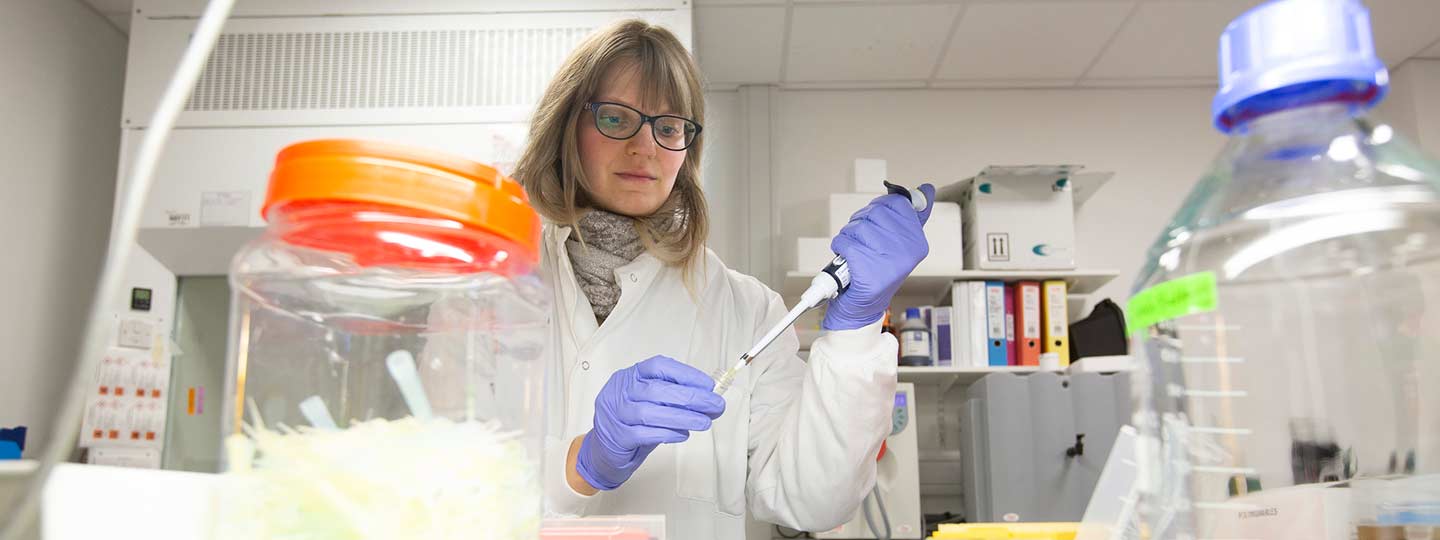Research that’s getting us closer to stopping long-term pain
01 March 2022
Around a third of the population in England have chronic pain. This long-lasting pain affects so many aspects of people’s lives, from their ability to work to affecting their personal relationships.
Pain is complex and is affected by many different factors, like your environment, your ethnicity and other socioeconomic factors.
Many people with arthritis are often living with other conditions as well, which can make treatments unpredictable and hard to manage.
There is a real need for pain research to help understand what causes and influences people’s experience of pain. This will help to find effective treatments, with fewer side effects.
Our commitment to tackling pain
We’ve invested £12million into research which will find answers to this problem. Last year, we shared the first set of projects that form part of our Advanced Pain Discovery Platform.
We’re delighted to announce that together with UKRI, we’ve funded eleven more projects as part of this initiative.
These projects will help increase our knowledge about what causes long-lasting pain in arthritis and other related conditions, getting us closer to finding new ways to treat it.
They cover a wide range of conditions, from fibromyalgia to sciatica and will help researchers to get closer to what causes the pain in these conditions and how to stop persisting pain.
What will the research look at?
Understanding changes in nerves
There is still a lot we need to understand about changes to our nerves and how this contributes to long-lasting pain.
Dr Franziska Denk will look at pain nerves that are active without anything stimulating them and see whether we can switch them off.
Our brains also play a big role in how we experience pain. Dr Ben Seymour will look how the brain allows us to adapt and recover from injuries and how this process is associated with chronic pain.
Faster diagnosis for fibromyalgia
There are currently no tests for fibromyalgia, meaning people can often go years before getting a diagnosis.
Dr David Andersson has previously shown that fibromyalgia might be caused by the immune system. His study will use what they have learnt to develop a test for fibromyalgia, reducing the time it takes to get a diagnosis and treatment.
Better treatments for arthritis
The pain of osteoarthritis often is not reduced by pain killing drugs. To develop more effective treatments, it’s important to understand more about the condition.
Dr Simon Wyn Jones has previously shown that a type of cell called fibroblasts may play a role in pain in osteoarthritis. His study will take this research further to develop targeted treatments. Professor Victoria Chapman will look at how molecules involved in healing produce pain relief in osteoarthritis.
Drugs that can target the body’s own cannabis-like molecules (endocannabinoids) have shown great potential for decreasing pain but have often come with lots of side effects.
Professor Ana Valdes will look at how endocannabinoids reduce pain through diet and exercise and if these effects could be used to treat pain.
Understanding what can make people develop chronic pain
Chronic pain can be extremely disrupting to the 1 in 4 people living with it.
Professor Danielle van der Windt will look at the causes and risk factors associated with this type chronic pain. This will help to understand which types of pain management such as self-management or treatment options are best suited for a person’s individual needs.
Complex regional pain syndrome (CRPS) is a chronic pain condition that can occur after injury causing pain and swelling. The treatments available are limited and often have side effects.
Professor Clare Bryant will looks at how genes associated with CRPS are involved in inflammation and pain. Understanding more about this will help to develop new more effective treatments.
Sciatica is a condition that have a big impact on everyday life for the people living with it. Dr Annina Schmid will look at what causes sciatica to become chronic pain in the FORECAST study.
People who’ve had COVID-19 can sometimes experience pain and fatigue for months afterwards. Professor Stuart Bevan will look what causes pain in long-COVID to understand the best way to treat it.
Pain can occasionally be an unwanted side effect of some treatments. Chemotherapy drugs can sometimes cause nerve damage, so it’s important to be able to spot the signs early. Professor Anthony Pickering will design and test a system for monitoring nerve health that can be used by people at home.
Get the support you need
- If you would like to talk to someone, you can call our free helpline on 0800 5200 520
- Talk to our arthritis virtual assistant, 24/7
- Join our online community
- Stay in touch and follow us on Twitter, Facebook and Instagram.
You might also be interested in...
-
Testing new approaches to managing pain
Our investment into pain research is just one of the ways we’re aiming to improve understanding of pain and develop new treatments for people with arthritis.
-
How is our research helping young people to talk about their pain?
Learn how research is improving how healthcare professionals assess musculoskeletal pain and communicate this with children and young people.